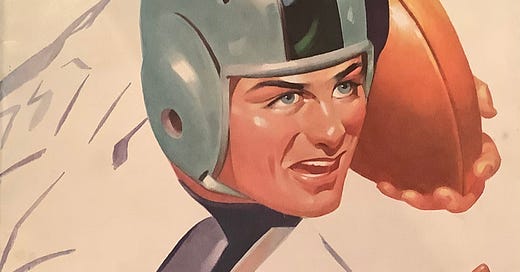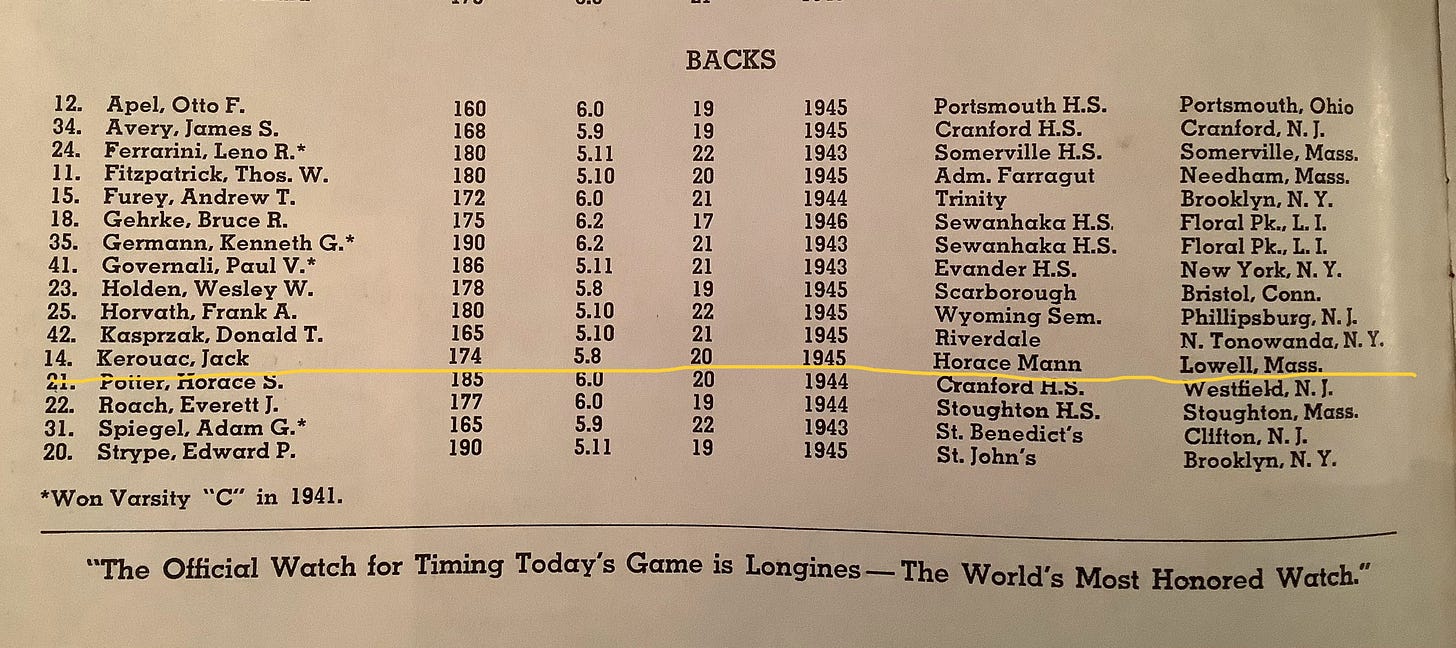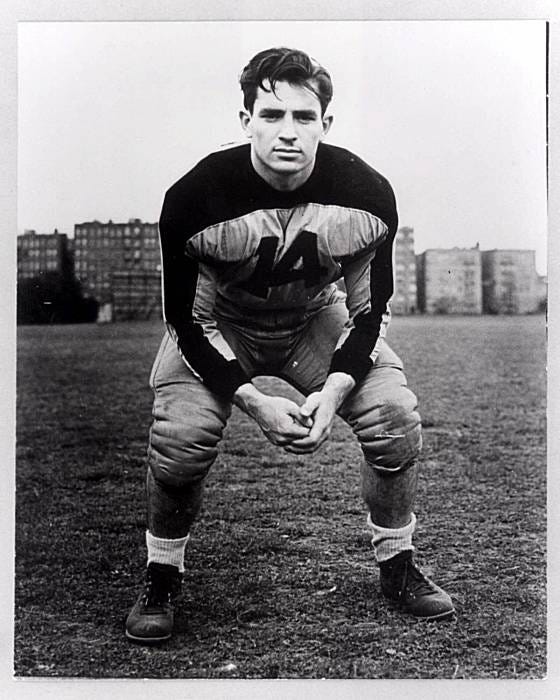I’ve been studying, and writing about, the too-short life of Catholic novelist Jack Kerouac of “Beat Generation” fame. The widespread familiarity with his name is due to the popularity of his 1957 novel On the Road, and the commonly held belief that he was the “founder” of the “beat movement.”
He is also remembered for his style of writing, called “spontaneous prose,” and to a lesser extent, his poetry. And then there are the trials and tribulations of his life - broken relationships, drug and alcohol use, and early death at age forty-seven.
Less known is that Kerouac was a stalwart gridder. A native of Lowell, Massachusetts, he played his high school football at Horace Mann Academy where he earned All-State honors in 1939.
The following year he enrolled at Columbia, on a football scholarship, and played on the 1940 freshman team. He suffered a broken leg in the second game of the season, which, according to former teammates, devastated Jack. He left college for a year, taking a job in Massachusetts, but returned briefly in ‘42 taking a spot on Coach Lou Little’s varsity squad.
One wonders how the course of Jack’s life may have changed had he not suffered that broken leg on the gridiron. We may never have had On the Road or the “beats,” and his life story completely different, perhaps even evading an early death due to alcoholism.
I have a piece coming out soon in a national magazine where I put a surprising spin on Kerouac’s drunken appearance in 1968 (one year before his death) on William F. Buckley’s political talk show, Firing Line. I’ll post a link when it’s published. In it, among other things, I make the case that Kerouac should not be remembered as some sort of social phenomenon or leader of some cultural revolution, but rather as an artist, a Catholic artist - and that that is how he would want to be remembered.






